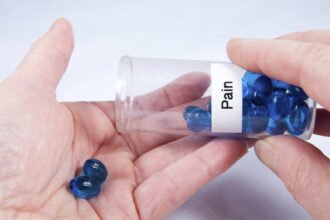Struggling with addiction can often prove to be a long and winding road. For many, the journey to recovery has a lot of false starts along the way. This is largely due to the fact that all addicts respond differently to different treatments. When you’re trying to find help in the battle against drugs and alcohol you may not be thinking scrupulously about your options. The desire to get help can often outweigh the need to find the right help. Understanding your options can help you make an informed decision in regards to getting the right help.
The Severity of Your Addiction
From the outside, addiction may seem like it impacts every person in the same way. While there is overlap, the severity of each person’s addiction will vary. This is a big reason why people struggle with finding success with their recovery. Someone with a lifelong dependence on alcohol is going to have unique needs when compared to a person who has been drinking for a shorter amount of time. The severity of your addiction can make a big difference in whether inpatient or outpatient is a sensible fit for your recovery.
Inpatient
Knowing what to expect in inpatient treatment can help you see if it is the best fit for coping with your addiction. With this type of treatment, a patient is required to live in a rehab facility for the duration of his or her treatment. This type of program is geared toward people who are seriously struggling with their addictions and need to be removed from familiar surroundings in order to prevent themselves from being enabled. This option also allows addicts the opportunity to get the substances out of their systems and deal with withdrawal. While this type of treatment has been known to have a high success rate, it won’t work for everyone. This option is disruptive to daily life, requiring participants to walk away from responsibilities like work and family. Still, this removal from everyday life is exactly what makes the treatment useful in the first place. Programs can run anywhere from 30 days to six months, depending on the specific needs of the person seeking treatment.
Outpatient
Some people do not require the same level of treatment to find help recovering from their addictions. For someone with a mild addiction, it can be beneficial to look into understanding outpatient treatment. Unlike the inpatient option, outpatient programs do not require a participant to live in a designated facility. Instead, he or she is allowed to live at home while going to the rehab facility for a set amount of time each day. This is ideal for someone who is not grappling with an extreme level of addiction, as the participant is allowed to go about daily life as usual. One of the main reasons people attend outpatient programs is for the support system found there. When you are given the opportunity to share with and learn from other addicts, it can create a sense of community. Knowing there are other people who can relate to your struggles can be a huge help with finding the stable ground you need. Outpatient programs also tend to be a bit more affordable than other options, which can be a big benefit to those who are not able to afford more elaborate solutions.
Transitioning
Depending on which option works best for your needs, you are going to need to make a few decisions before starting your program. If inpatient is your choice, you’ll want to get all of your affairs in order. Before entering a rehab facility, inform your employer of your move, as well as any regular appointments you might miss while away. Speak with friends and loved ones about the decision, and designate one or two people to act as your contacts. Setting loved ones as contacts can help hold you accountable during the recovery process. For those exploring outpatient options, there is a bit more freedom involved. You will be required to attend roughly 10 to 12 hours of counseling a week at the rehab facility, which will include educational seminars and group sessions. Outside of this, you can go about your life as normal. Some people may require outpatient detox, which involves strict monitoring during daily visits to the rehab to ensure the participant is adhering to the detox process.
Find Your Support
While rehab programs are crucial to the recovery process, additional steps need to be taken by addicts who want to ensure their success. Addiction can be an isolating experience and finding a support group is quite encouraged. You’ll want a mixture of people you’ve known for a long while, as well as people you know are going through their own recovery processes. Studies have shown that people with support networks to turn to are much more likely to stick with recovery compared to those without anyone to turn to.
Get Involved
Getting involved with larger communities can also boost your odds of success. There are a number of ways you can find help at different points during your recovery. A few options include:
- Attending meetings of recovery groups like AA and NA
- Going to regular religious services at your center of worship
- Committing time to a charity or nonprofit
When you are searching for a way to beat addiction, you need to take a moment to think about the options that are in front of you. Though making a snap decision can seem appealing when you are in need of help, learning about your choices can increase the likelihood of success.










